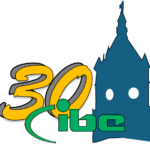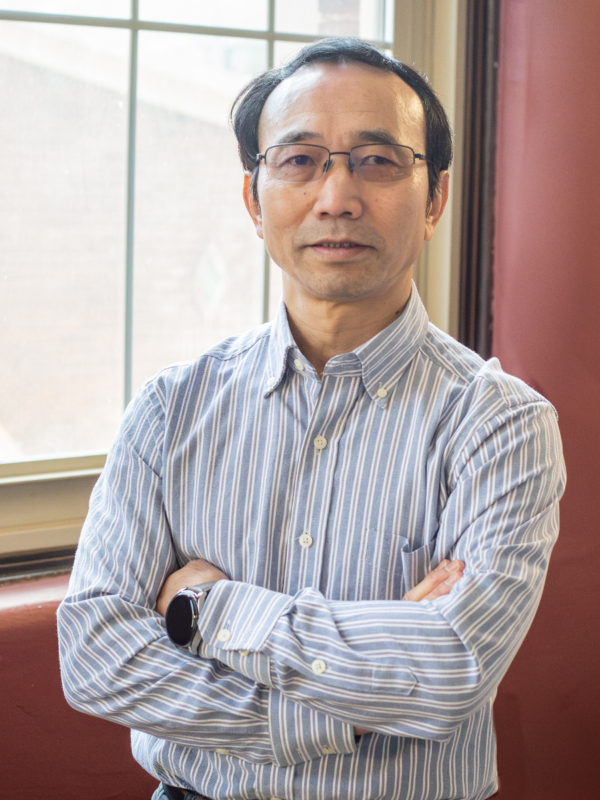Innovation through Biological Engineering

To submit an abstract for the conference, please use the Call for Abstracts button below. The link will guide you to Easy Chair and you will be prompted to sign in or create an account. Please select which session you would like your abstract to be considered for based on the session descriptions at the bottom of this page. Abstract submissions are due June 15th.
To register for the conference, please click on the Register Now button below. Please make a new account or login by following the sign up instructions located in the header of the site.
September 12th and September 13th
Salt Lake City, Utah
Little America Hotel
The theme of this conference, “Innovation through Biological Engineering,” highlights the groundbreaking advancements and interdisciplinary approaches in our field.

Meet Our Keynote Speakers

Dr. Chaitan Khosla is a professor in the departments of Chemistry and Chemical Engineering at Stanford University. He is also the founding director of Stanford’s Innovative Medicines Accelerator (a partnership between Stanford Medicine and Sarafan ChEM-H). Chaitan received his PhD in 1990 at Caltech. After completing postdoctoral studies in genetics at the John Innes Centre in the UK, he joined Stanford University in 1992. His work on antibiotic biosynthetic mechanisms led to new methods for engineering enzyme assembly lines to make novel anti-infective agents. He and his collaborators have also studied the chemical biology of celiac disease, a widespread but overlooked autoimmune disorder. He has co-authored over 400 peer-reviewed publications and 75 issued U.S. patents. He is an elected member of the American Academy for Arts and Science, the U.S. National Academy of Engineering, and the U.S. National Academy of Sciences. Over the past three decades, he has helped launch four companies based on research advances in his laboratory.

Dr. Roger Ruan is a Professor and Director of Graduate Studies in the Department of Bioproducts and Biosystems Engineering and the Director of the Center for Biorefining at the University of Minnesota. He has been elected to theNational Academy of Engineering (NAE) and inducted as a Fellow of the National Academy of Inventors (NAI). Additionally, he is a Fellow of multiple professional organizations, including the American Society of Agricultural and Biological Engineers (ASABE), the Institute of Food Technologists (IFT), and the International Association of Advanced Materials (IAAM). Dr. Ruan has received numerous prestigious awards, including the International Bioprocessing Association’s Pandey Award, the Chinese American Food Society (CAFS) Professional Achievement Award, and the Scientist of IAAM Award. His research focuses on renewable energy and environmental technologies for advancing a sustainable circular economy. His work spans biomass and solid waste pyrolysis, liquid waste treatment through anaerobic digestion (AD), microalgae cultivation, and hydroponics, as well as the development and application of nonthermal plasma technologies. Dr. Ruan has published over 600 scientific papers, authored two books and 30 book chapters, and holds 21 U.S. patents.
Technical Sessions
1. From Linear to Circular Bioeconomy Systems: This session invites presentations reporting advanced innovations inspired by nature’s cycles of life where dynamic interwoven processes over space and time produce no waste. Presentations will describe efforts to transition the current linear fossil-based economy systems that take-make-waste resources and materials producing vast amount of waste to circular bio-based economy systems that will replace fossil with bio-based carbon and reuse/maintain resources and materials within as long as possible to produce near zero waste.
2. Bioenvironmental Engineering: This session will cover a wide area of research interests in bioenvironmental engineering including but not limited to water resources, wastewater treatment, water quality pollutants (e.g. sediment, nutrients, bacteria, pharmaceutical), biodegradation, bioremediation, hydrologic monitoring and modeling, climate and land use change impact, cropping systems, and scale issues.
3. Synthetic Biology and Metabolic Engineering: This session will focus on recent advances in synthetic biology and metabolic pathway engineering for novel products and for the improvement of cellular fitness and tolerance, including but not limited to development of foundational technologies, new platform technologies, new biosynthetic pathways or enzymes, biofoundries, and molecular tools. Parts, devices, and systems that support an emerging bioeconomy will be presented.
4. Tissue & Cellular Engineering: The session invites abstracts related to all areas of tissue and cellular engineering, including but not limited to cell culturing, isolation, cell seeding, cell harvesting, scaffolds for tissue engineering, bone grafting, bone tissue engineering, bone scaffolds, cellular therapies, artificial organs, gene and drug delivery, cell-substrate interactions, regenerative medicine and clinical translation of these approaches.
5. Biomaterials & Biomimetics: The focus of this session will be on the development of technologies that utilize biological materials or biological functions as a design element or template to mimic biological functions and systems. Studies reporting micro- and nanofabricated surfaces and structures, microfluidic and other devices that contribute to the development of artificial tissues/organs, drug delivery/targeting, synthesis of compounds with targeted functionalities, and other biological engineering applications are invited.
6. Biomanufacturing & Bioprocessing: This session will concentrate on the latest advancements in the manufacturing and processing of a diverse range of bioproducts, including biofuels, biopharmaceuticals, and food ingredients. Advances in fermentation, biocatalysis, cell-free bioprocessing, and other areas of biomanufacturing and bioprocessing will be presented.
7. Sustainable, Bio-derived Fuels, Chemicals, and Materials: Living systems such as plants, microbes, animals or previously lived organisms and their byproducts (e.g. manure) can be used to produce fuels, energy, materials and chemicals. This session will explore modern technologies and tools that offer means to generate a diverse stream of products from biomass sources in a sustainable manner with significantly low environmental, ecological and social impacts.
8. Biological Systems Modeling the role of AI in Biological Engineering: This section will focus on biological systems modeling with emphasis on the application of AI tools. Applications of research at different of multiple scales form modeling of biomolecules, synthetic pathways, biocatalysis, and bioprocesses to entire ecosystems are invited.
9: Biological Engineering Commercial Applications in Industry: This session will focus on commercial or near-commercial devices and technologies that apply biological engineering within “real-world” contexts, in a wide array of fields such as but not limited to pharmaceutical products, food, and agriculture.
10. Biosensors, Sensing, and Diagnostics: This session explores the development and application of biosensors – devices that use biological recognition element to detect and quantify analytes through various signal transduction methods. Topics include sensor technologies for environmental monitoring, food, agriculture, biological sciences, and medical applications.
11. Biological Engineering for Health and Safety: This session explores the intersection of biological engineering and health, focusing on the development and application of engineered devices for the safety and well-being of humans and animals. Topics include medical devices, regenerative and neural engineering, drug delivery processes, as well as bioimaging techniques that focus on disease prevention and risk assessment.
12. Biological Engineering Education: This session will focus on educational practices and research. Abstracts focusing on improving learning efficacy through experiential/active learning such as novel hands-on activities, undergraduate research experiences, in in-class discussions using for example a scholarship of teaching and learning approach are encouraged. Also abstracts on the development of learning assessment instruments for accreditation, and collaborative teaching are encouraged.
Special Programming
1. Poster Session – open to everyone, best poster awards for students
The poster session presentations covering any topic within biological engineering are invited. A special poster competition for student research projects or engineering design projects will be included within the poster session. The top three Undergraduate Student Posters and top three Graduate Student Posters will receive cash awards and certificates of merit.
2. Speed Networking – open to everyone, find new collaborations and job opportunities
This event provides a wonderful social opportunity for the attendees, including students, researchers, professors, industry representatives, and other professionals.
3. Bio-Business Career Panel – open to everyone, learn from and interact with experts in the field.
This session provides a forum for emerging companies to introduce their technologies and companies to the engineers, life scientists, and fellow business registrants for this meeting. This session is a great opportunity for the attendees to directly interact with industry representatives. This session provides a forum for local emerging companies to introduce their technologies and companies to the engineers, life scientists, and fellow business registrants for this meeting. The Bio-Business Nexus session typically allots participating companies 12-15 minutes for a podium presentation. If desired, display materials may be placed in the meeting room during the session. We will accept participants on a first-come, first serve basis as we have time available in the program.
4. Bioethics Essay Competition – open to students and awards for students
This session will feature the results of a student competition and selected presentations on bioethics as it relates to biological engineering topics. This year the theme is “AI: Friend or Foe of a Circular Bioeconomy?”
Selected Papers from IBE 2025 to be published in Journal of Biological Engineering!
Journal of Biological Engineering (https://jbioleng.biomedcentral.com) is the official journal of the Institute of Biological Engineering (IBE), published by BMC, part of Springer Nature. Authors of all accepted papers (oral and poster) presented at the 2025 IBE Annual Conference, to be held in Salt Lake City on September 12–13, 2025, are invited to submit their work to the thematic series “Selected Papers from IBE 2025” of Journal of Biological Engineering. Submission due date will be announced soon, which should be around the end of 2025. All submitted papers will go through the same editorial and peer review processes and the contents should not have been published elsewhere. We also have a good number of 100% article processing charge (APC) waivers, which can be applied to the accepted papers to this thematic series. (Current APC is $2890 unless your institution has an open access agreements with BMC.) Contact the editors in chief of Journal of Biological Engineering for further information: Prof. Raj R. Rao (rajrao@uark.edu) and Prof. Jeong-Yeol Yoon (jyyoon@arizna.edu).
Conference Program Chairs:
- Dr. Anhong Zhou from Utah State University (anhong.zhou@usu.edu)
- Dr. Jose Reyes-De-Corcuera from the University of Florida (jireyes@ufl.edu)
